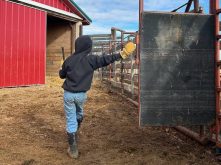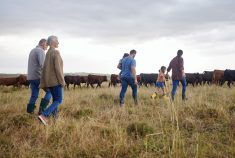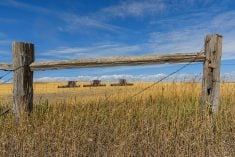A couple we’ll call Bob and Tess, both 59, have farmed in central Manitoba for four decades. Their farm has 3,000 acres, mostly in grain. Bob’s health has declined, and he feels he cannot carry on much longer. Their son, Fred, is 24. He hasn’t been farming, but he would like to supplement his income from his job in town. Fred returning to the farm could keep the farm in the family and perhaps provide a legacy for Bob and Tess’ grandchildren. Their daughter, Alice, is 29 and would like financial assistance to buy her first home. A second son, Pete, has a good off-farm job and is not interested in the farm.
Read Also

Avoid these thought traps when investing
Investing for Fun and Profit: Let’s review a list, by renowned fund manager Peter Lynch, of the most dangerous things that stock market investors can say to themselves, or to others.
Bob and Tess took their situation to Don Forbes and Erik Forbes of Forbes Financial Management in Carberry, Manitoba to create a plan for eventual disposition of their estate.
With two generations to consider, it’s complicated and estate distribution may not be finalized for decades. Rather than make Bob and Tess’ children wait, it’s useful to consider the idea of a family bank. As Don Forbes explains, “the family bank concept is to have the parents be the lenders for intergenerational families. Each generation should get bank financing from their inheritance.”
That requires the children or other heirs to develop a written business plan on how they will use the financing they will receive. Each proposal should include a repayment schedule, interest rate, and collateral. If a loan defaults, the parents’ wills would specify that the outstanding loan balance be deducted from the beneficiary’s own legacy during the estate settlement in the future.
In this case, Fred proposes that Bob and Tess provide financing for a part-time farming operation he can manage in the future. Borrowing $200,000, amortized over 25 years at a four per cent interest rate would result in monthly payments of $1,052. Over the period, the accumulated interest of $115,000 would be deductible from farm revenues for tax purposes.
Bob and Tess can give Fred a favourable deal on farm machinery at a transfer or sale price close to book value. Values above book value would be taxable to the parents’ estate.
As a long-term incentive for Fred, Bob and Tess can transfer a quarter section to him every five years. The home quarter would be an optional extra when the parents decide to move to town, Erik Forbes says.
When transferring the title of a quarter section to Fred, Bob and Tess can take a zero interest, promissory note equal to market value. This protects the parents’ future income stream if Fred has creditor or marital issues in the future. Fred can still pay a small land rent to Bob and Tess to enhance their retirement income.
This process ensures that if a spouse divorces, the eligibility would be only for half the gain in value above the stated value on the promissory note. Without the promissory note, the divorcing spouse would be entitled to half the entire value of the parents’ gift. It would also be prudent to add a clause specifying that, if Fred decides to rent out the land in the future and no longer actively farms it, the parents would receive the rental income.
Daughter Alice is newly married and wants to purchase a new home. Bob and Tess, as potential lenders or co-signers for the mortgage loan, should ask for a written proposal on how the mortgage will be paid including amounts, terms, etc. It would prudent to register the mortgage against the title in the parents’ name, Don Forbes cautions.
Income from renting the farmland not farmed by Fred will generate a monthly income of $3,200 for Bob and Tess. Add to this $1,666 combined monthly dividends from taxable stocks in an investment portfolio, and $4,320 per month in capital gains, and they will have a total income of $9,186 per month — $8,000 per month after taxes, Erik Forbes estimates. Once they turn 65, they can add Old Age Security and Canada Pension Plans to their income.
“The core of this estate is solid,” Don Forbes says. “The challenge is to divide assets fairly for the children and for the parents with suitable protections. We have done that in this plan.”
Andrew Allentuck’s book, “Cherished Fortune: Make Your Wealth Your Business” (with co-author Benoit Poliquin), was published in 2018.















